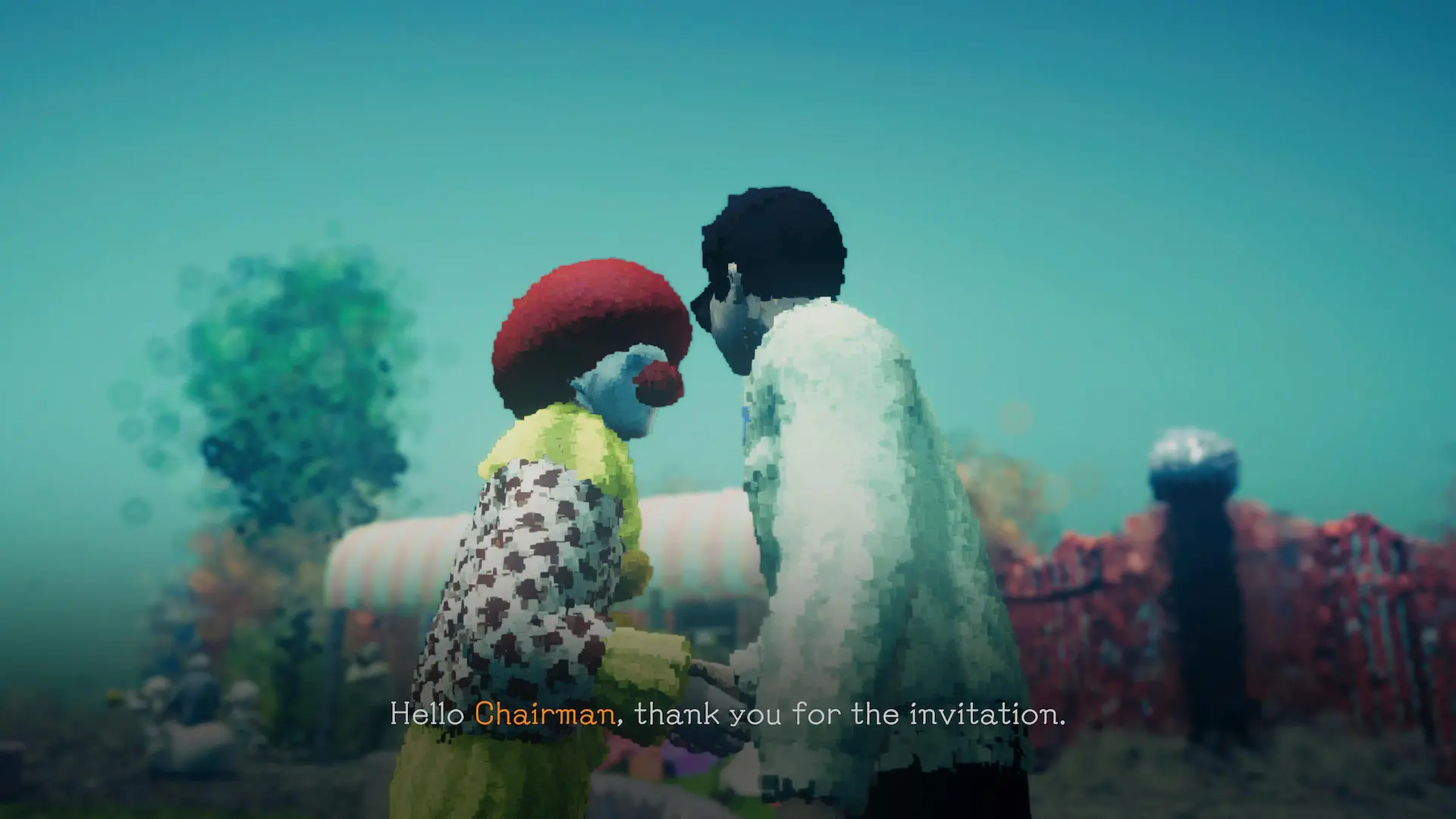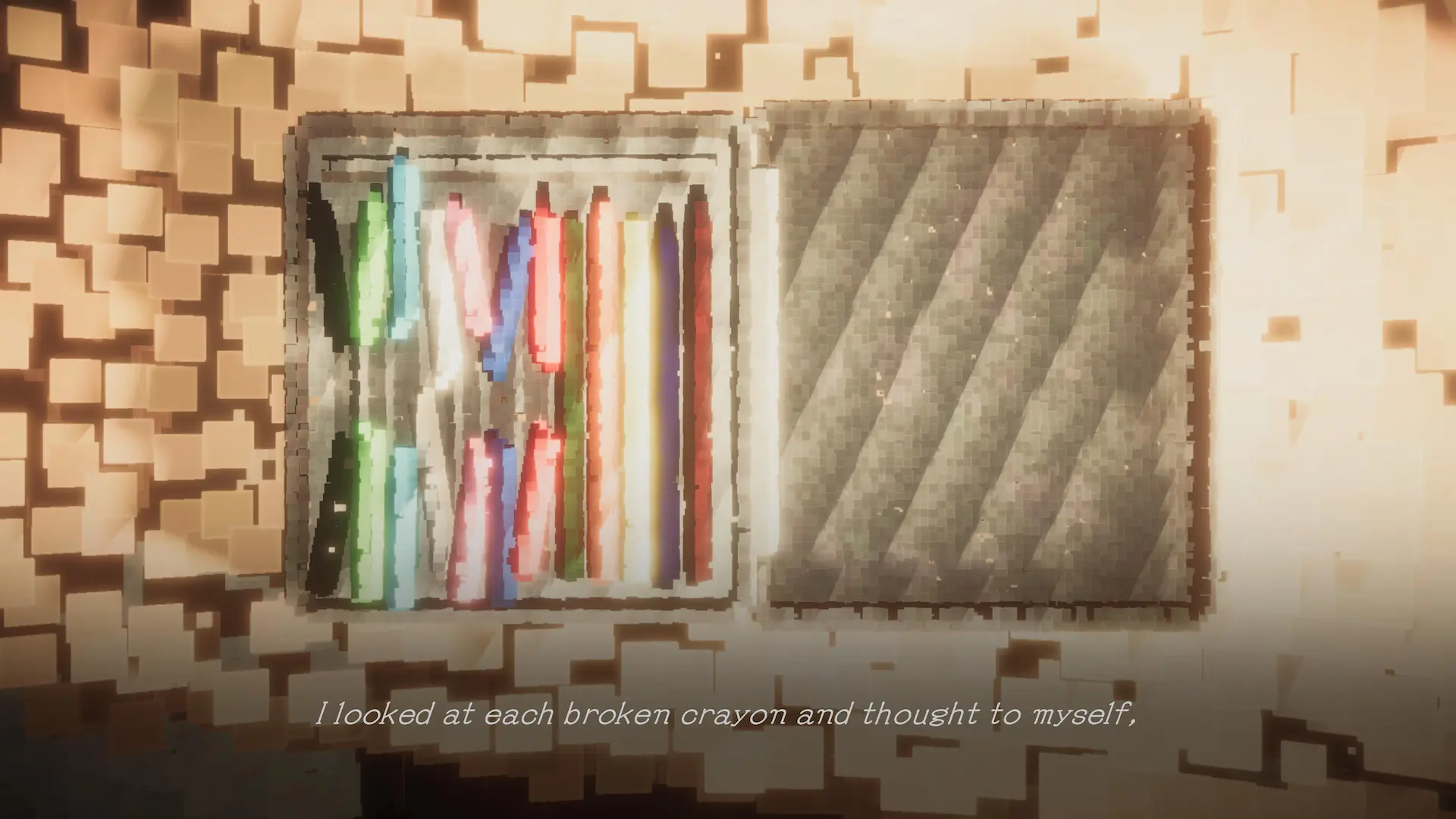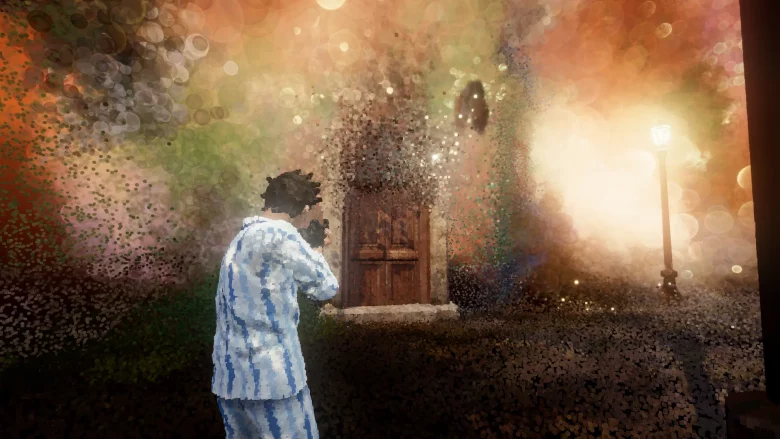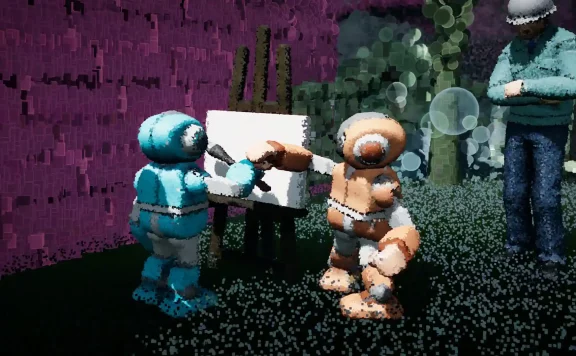“What is fun? What’s fun for one gamer might be philosophical pretentious nonsense for another.”
That’s the question Dreams of Another asks every two minutes for the entirety of its run-through: constantly trying to impress on you that things change depending on your perspective, and this constant pummelling with pseudo-philosophy puts a dampener on what’s actually a surprisingly fun game (despite the pretentious nature).
The opening has you playing as The Wandering Soldier, a constant presence throughout the game, as you’re treated to a short vignette highlighting his inability to fire a gun, even when in active combat. It’s an interesting premise, and coupled with the unique artstyle it looks almost like it’s stepped out of the PS2 era. The initial conundrum of whether or not the soldier will be able to fire his gun, even when he and his squadmates are in immediate danger, is something I was keen to see more of. Unfortunately you’re taken away from him just as things are escalating, and you’re instead thrown into the shoes of the “The Man in Pajamas”, who is also equipped with an assault rifle but has absolutely no qualms about using it.

As a huge fan of games like Powerwash Simulator, I wasn’t expecting the mechanics in Dreams of Another to scratch that specific itch quite as effectively as it did. The Dreamworld exists in two states: Abstracted areas are “out of focus”, it’s hard to move through them and you’ll often hear things happening within that you can’t see. Shooting them materialises those areas, allowing you to traverse them, see NPC’s and find collectibles. You don’t have to be perfectly accurate with your assault rifle, you can just spray in wide arcs and you’ll materialise enough of the area to easily move about, but if you want to try and clear as much as possible then you’ll have a very satisfying time. There’s a weird juxtaposition between The Man in Pajamas and his rifle, and between the traditional L2/R2 aim/shoot controls and the ethereal, almost impressionist style of the environments, and it all comes together to make something I really quite enjoyed.
I also liked how the game made clever use of limited environments. The game’s split up into separate stories, each with an overarching goal. For example, in the first main story you’ll need to get someone to play a piano in the town square, but to do that you’ll need to take detours involving moles living underground, trips up to a bell tower and more. The game presents these stories in a number of smaller scenes, so you’ll start in the town square and once you’ve completed your goal the game will put you back out on the menu screen, where The Man in Pajamas is fast asleep, and you’ll rejoin the game but be in a new location, rinsing and repeating as you cycle through locations you’ve already visited but have new things to achieve. It was genuinely quite addictive, and there were multiple points where I thought “ok I should switch off and go to bed” and it was only 30 minutes later after completing three more scenes that I finally did.
Fans of collectibles will enjoy the game too, there’s stuff everywhere. I don’t mean that in a derogatory way, the stuff you collect is literally tat: lost shoes, bits of old pottery, broken watches etc. Most pieces are unique and often have an interesting name telling you a bit about them. You can trade these in with The Wandering Soldier, who follows you into each scene, and he’ll swap them for new weapons, ammo for those weapons or, occasionally, new abilities such as a dash.

You’ll also spend a lot of time talking. Not just to people, but to things too. This is where the game quickly fell down for me. A lot of the dialogue in Dreams of Another, particularly from inanimate objects, sounds like something you’d hear a student spouting after their first philosophy lecture. I interacted with a door early in the game and it asked me “Do we doors exist to open? Or to close?”, while a tree told me “We trees grow downwards as well as upwards. Depending on perspective, down can be up and up can be down”. Every conversation just came across as incredibly pretentious. I’m probably just too stupid to “get” it, but the constant musing on perspective and existence put me off the game’s narrative to the point where I eventually started skipping the conversations entirely.
Dreams of Another also carries across this feeling to some of its smaller vignettes too. You’ll occasionally get interludes where you’re playing as The Wandering Soldier or an earlier version of The Man in Pajamas, and while they could provide interesting context for the game, they’re undermined by some incredibly frustrating mechanics. Being forced to walk at a snail’s pace between objectives doesn’t magically make a scene feel more poignant, it’s just annoying.

One area the game excels though is the presentation. It’s gorgeous to look at and listen to. It’s hard to explain how it looks, but it’s almost like a digital impressionist painting made up of thousands of dots, which is how the game allows you to materialise and abstract things. It’s very clever and I can’t remember the last time I saw a game blend the mechanics and the visuals together so neatly. It’s lovely on your ears too, with soft dream-like soundscapes that plod away in the background, drifting in and out and never feeling like they’re intruding. The menu music in particular is really soothing, and I’ve got it playing as I type this out.
If, like me, you take Dreams of Another at face value and focus on the mechanics then you’ll probably have a good time. Exploring the Dreamworld is lovely and there’s a hypnotic feel to blasting your way through each area. Your mileage is going to vary when it comes to the themes, dialogue and narrative though. If you’re buying what the game’s selling then more power to you, but for everyone else you may find the pseudo-philosophical waxings a little grating.


